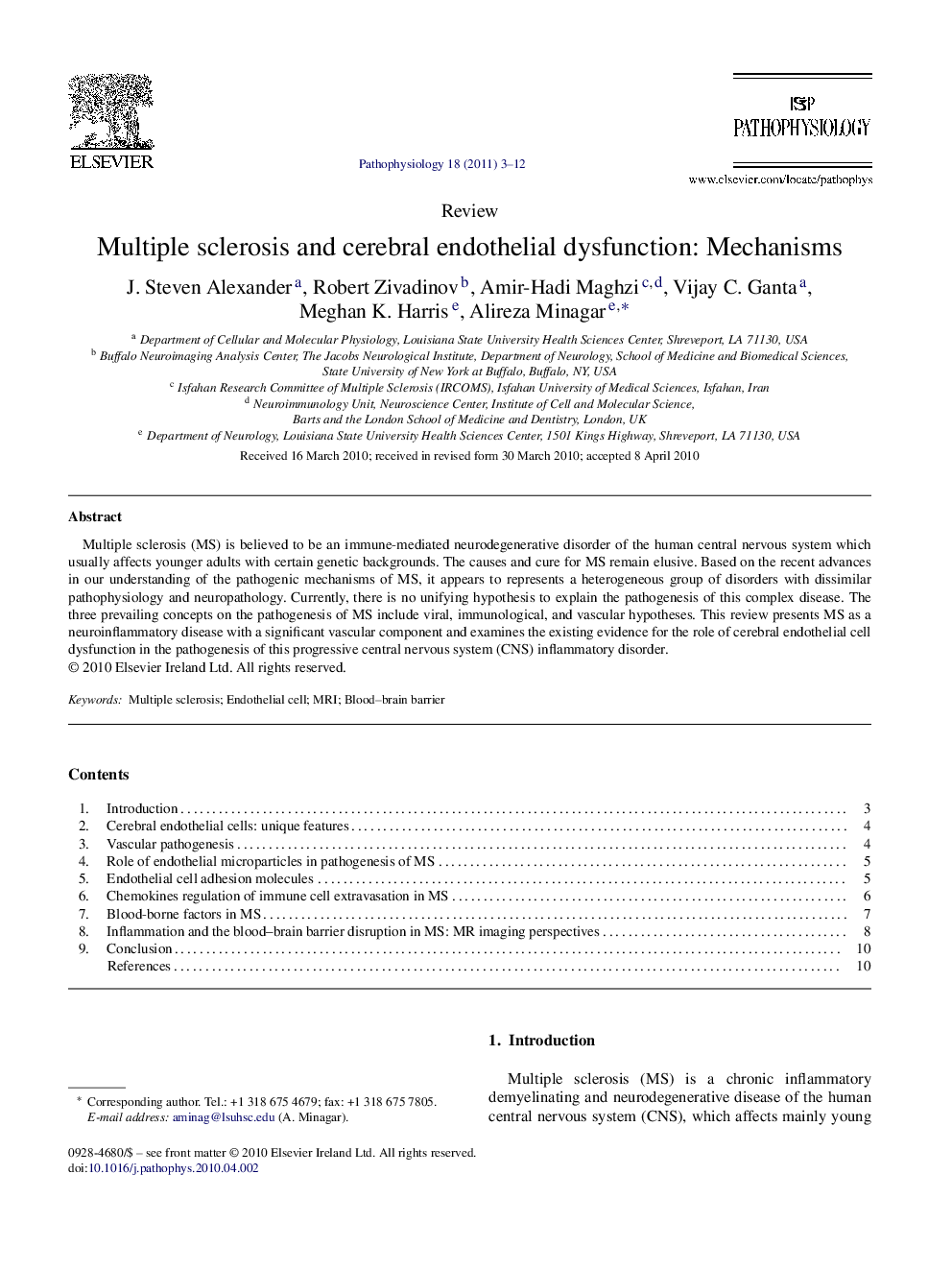| Article ID | Journal | Published Year | Pages | File Type |
|---|---|---|---|---|
| 4137119 | Pathophysiology | 2011 | 10 Pages |
Multiple sclerosis (MS) is believed to be an immune-mediated neurodegenerative disorder of the human central nervous system which usually affects younger adults with certain genetic backgrounds. The causes and cure for MS remain elusive. Based on the recent advances in our understanding of the pathogenic mechanisms of MS, it appears to represents a heterogeneous group of disorders with dissimilar pathophysiology and neuropathology. Currently, there is no unifying hypothesis to explain the pathogenesis of this complex disease. The three prevailing concepts on the pathogenesis of MS include viral, immunological, and vascular hypotheses. This review presents MS as a neuroinflammatory disease with a significant vascular component and examines the existing evidence for the role of cerebral endothelial cell dysfunction in the pathogenesis of this progressive central nervous system (CNS) inflammatory disorder.
